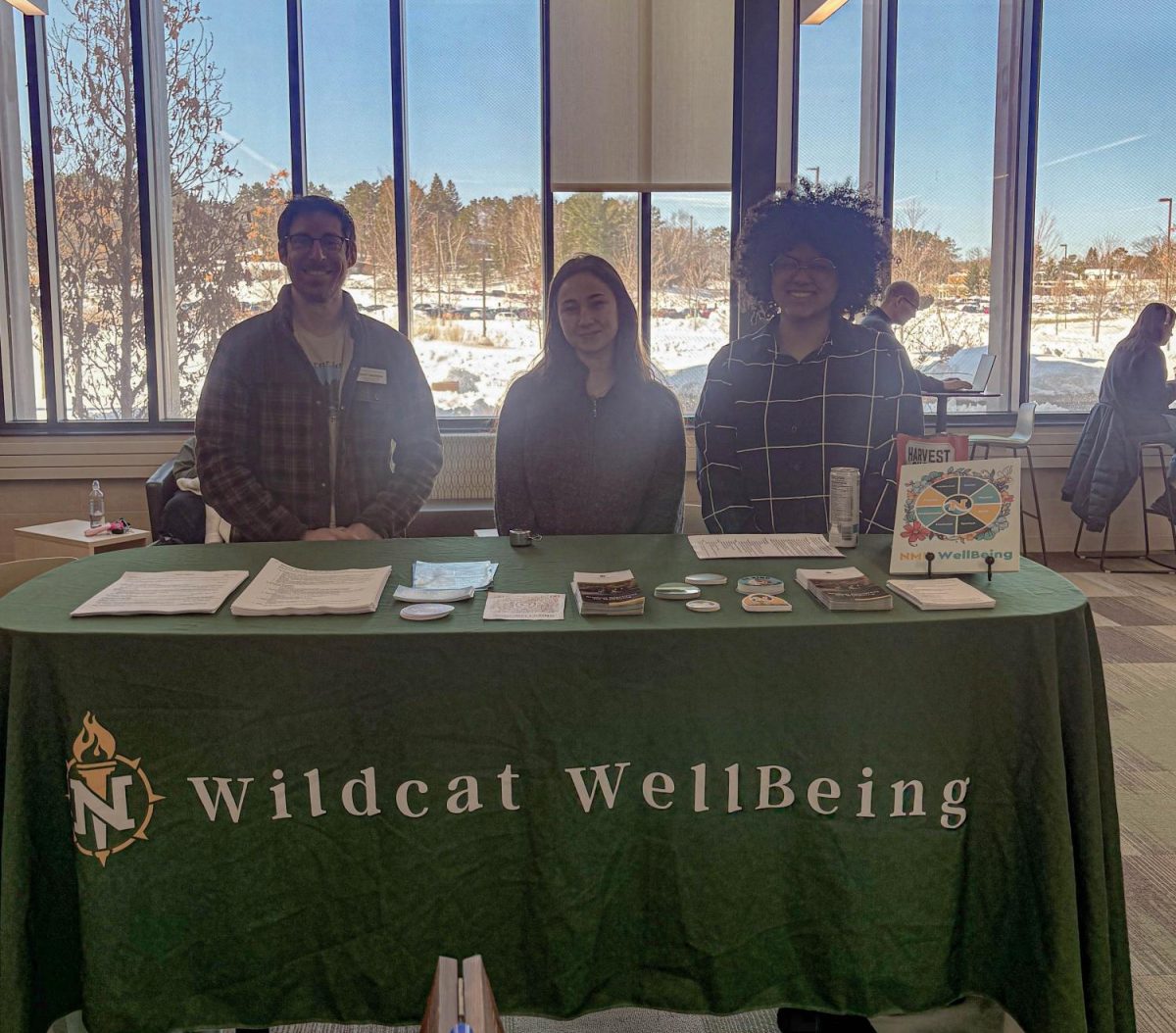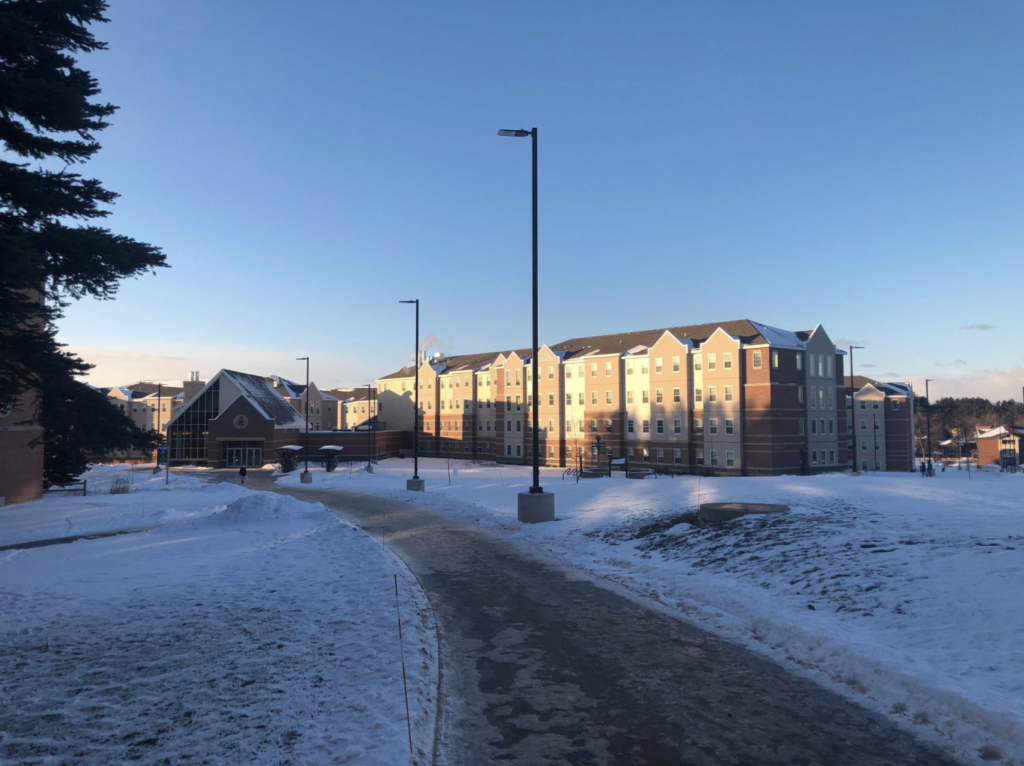Marquette, MI is notorious for inclement weather and more specifically, extreme winters. Back in Feb. 2019, Marquette recorded just over 200 inches of snow. This number equaled the average snowfall for an entire season, with winter still having two months left to go.
According to an article by Chris Dolce, a digital meteorologist with weatherchannel.com, Feb. 2019 was the second snowiest February on record behind 2002, which had 91.9 inches during the month.
“That total is already on par with the city’s 203.3-inch snow average for an entire season which spans from September into May,” Dolce said. “It’s also just the eighteenth time Marquette has topped 200 inches of snow in a season dating to the late 1800s.”
Currently, Marquette has recorded significantly lower numbers with 8-12 inches according to weather.gov’s snow depth map. However, despite the lack of snowfall, the temperature has still been low with just recent temperatures recorded at a feel of -1 for Feb. 10.
While snowfall is not a major concern for this winter, freezing temperatures still remains to be a concern for those traveling to campus and their classes. Michael Bath, chief of police and director of safety, reminds everyone to dress for the weather.
“When the temperatures are cold, and especially when there are low wind chills, this means hats, gloves or mittens, scarves and warm footwear,” Bath said.
When not wearing proper attire for the weather and exposed to freezing temperatures, frostbite can occur and range from first degree to fourth degree injuries. Frostbite can settle in as fast as just 30 minutes when exposed to temperatures sub-zero.
With the current pandemic, online classes have made it easier and safer for students to attend classes for many reasons. During the winter weather, online classes provide students the ability to stay home while still learning.
However, for those who are required to come on campus whether as a student, faculty or staff member, the weather can be unpredictable, especially for Marquette, which means that in some situations there needs to be a choice made whether or not to have campus open.
“It is recognized, however, that under certain extreme weather conditions, students and/or staff members cannot and should not attempt to come to campus; this is a decision which must ultimately be made by each individual, regardless of the reason,” according to NMU’s Inclement Weather Policy page. “The University will cancel classes, close offices or curtail services only under the most severe weather conditions.”
In the case of an inclement weather day or ‘snow day’, the goal is to make the call between 5 a.m. and 6 a.m. This gives students time before needing to travel if commuting to campus from nearby towns such as Negaunee, Ishpeming or Gwinn.
“If it appears that the weather is going to cause an issue for the opening of campus, they begin gathering information from the National Weather Services, NMU’s Grounds Department, Michigan State Police, etc. Once they have this information, they contact me and we discuss the current conditions and forecast,” Bath said. “I work very closely with NMU’s Grounds department to get their assessment of what the status of campus will be by 7:30 a.m. Depending on the amount of snow, wind and if it is a continuing snow event determines the accessibility of the campus. I then call the Provost and a decision is made whether or not we open or close.”
Andy Smith, supervisor of the Grounds department, said that the current winter has been unique due to the lack of snow. While there has been a lack of snow, Smith said that it does not make it any easier to keep the roads and walkways safe.
“This season’s smaller, infrequent snowfalls cause paved areas to become snow-packed and icy. The random 1/2 inch or 3/4 inch snows do not plow very well, especially if the snow is driven or walked on prior to trying to scrape it,” Smith said. “Therefore, a series of minor snows add up to areas of hardened snow that is difficult to scrape off,” Smith said. “This condition followed by bitter cold makes things worse, since many ice melting salt products are ineffective, or do not work at all below 0 degrees.”
Many around campus may have noticed the increase of sand throughout buildings. This is done to maintain traction for roads and walkways.
“Our sand is treated with calcium chloride to prevent it from freezing into clumps in our spreading equipment,” Smith said. “The sand works, but is messy and needs to be cleaned up front building entrances and removed from the grass when the snow melts in the spring.”
Despite great efforts in making campus safe when traveling to and from, the possibility of slipping on ice still remains. Both Bath and Smith remind everyone to stay cautious and watch their step when walking.
NMU has yet to call a snow day for the current school year. With having a mild winter, there hasn’t been a reason to call school off. NMU has also decided to not have their usual spring break and instead continue the semester after having a longer winter break.
In a recent forum meeting, questions from faculty members were asked of having the standard for a snow day be lowered given the current situation for the school year. President Fritz Erickson responded by stating how he hopes one morning to wake up and it is sunny with freshly fallen snow and call campus off for everyone to go outside and play.
“We tried to figure out ways in which we could build some break time in this semester,” Erickson said. “You know giving up spring break, that’s a hard thing to do. We want to take an attitude if there’s an opportunity to squeeze a break-in on a snow day now and again, then we should do that.”
Erickson would be correct. Giving up a spring break for many is hard. Students will continue the winter semester not having a break to enjoy, faculty and staff will not have time off from work, it’s a challenge many face. For Taryn Johnson, a junior English writing major, not having a break can be distressing.
“Obviously the COVID-19 pandemic has drastically changed the way universities are operating. However, I think that the constant coursework without a break to look forward to can be distressing. Especially in times of uncertainty and high stress like this,” Johnson said.
As a commuter student, Johnson walks to campus every day for work and school. Johnson hopes that because of the lack of having a spring break, NMU will make it up with snow days.
“I hope that snow days are used more flexibly than they have been previously because of the lack of spring break. I feel hopeful that those days are used on bitter cold days can help alleviate the stress of traveling to campus, finding child care or whatever other obstacles stand in the way of NMU students this winter.”
For those traveling to campus either on foot or by vehicle, it is important to remember to stay safe during the cold weather. Johnson reminds other walkers to wear warm clothing such as a winter coat, hat, boots, gloves and a scarf. For those driving, Bath reminds drivers to brush off their car fully and to give themselves extra time.

























